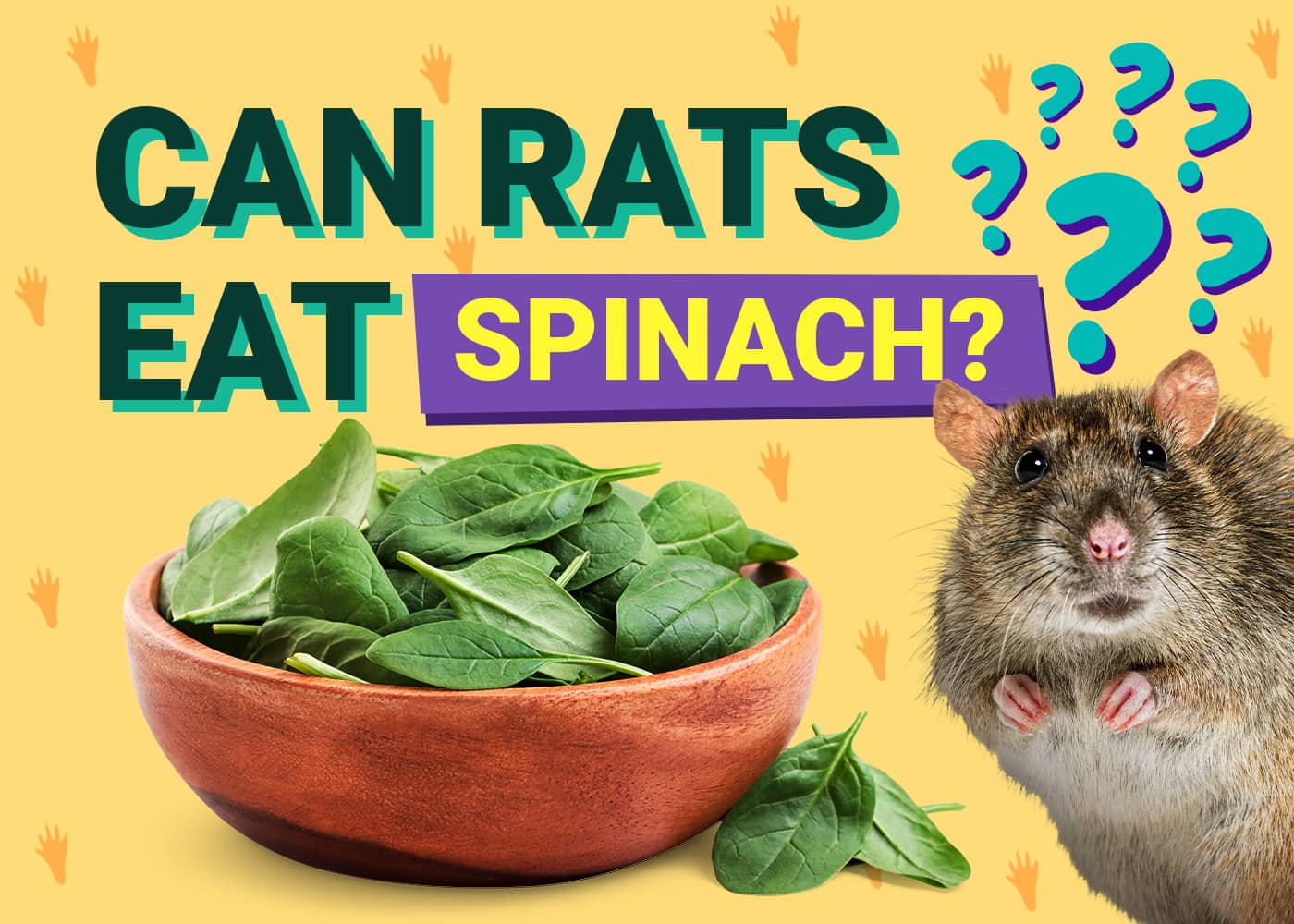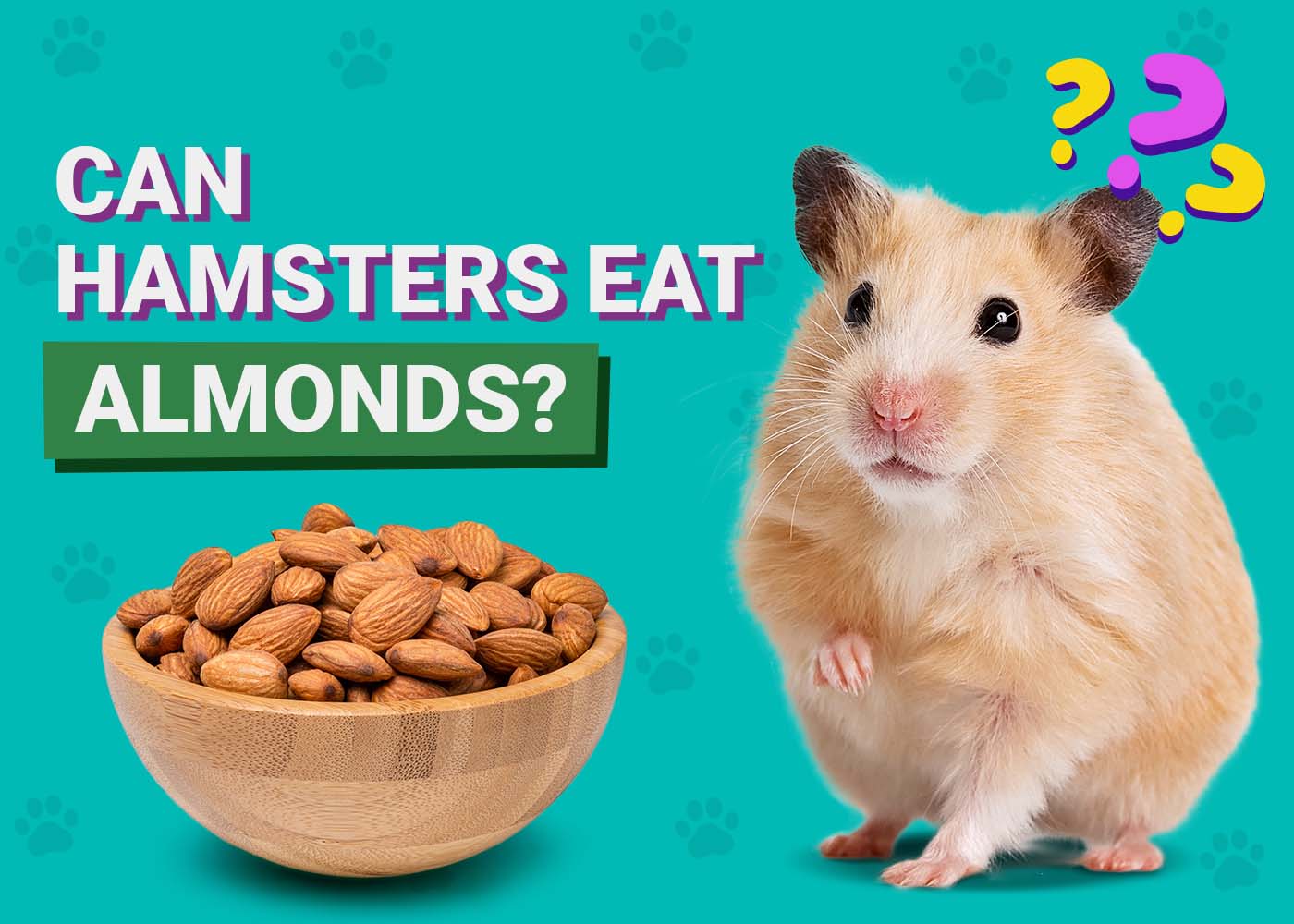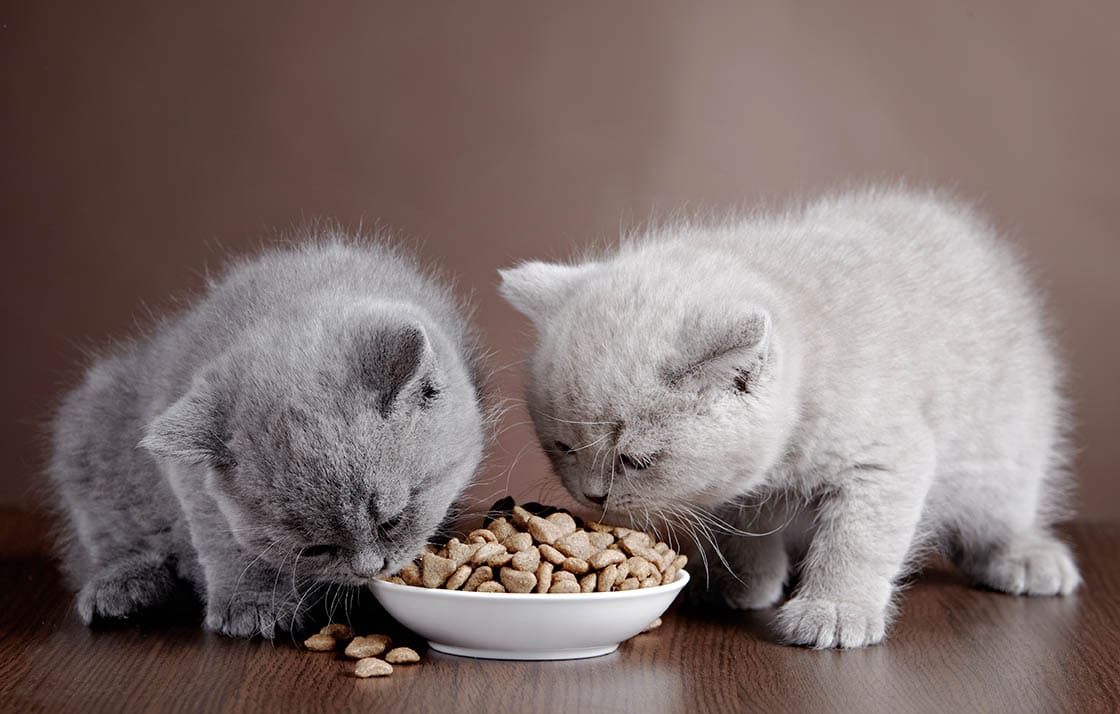VET APPROVED

The information is current and up-to-date in accordance with the latest veterinarian research.
Learn more »If you’re concerned that your chinchilla got a hold of a peanut, you can rest assured that peanuts are not toxic to chinchillas. However, being non toxic does not mean the food is good for them. While a single peanut won’t cause your chinchilla to perish, peanuts shouldn’t be fed as a regular food or even a regular treat. Here’s why.

Peanuts Have Too Much Fat
Peanuts are filled with fat and don’t have much fiber. While fats aren’t necessarily a problem in moderation, they contain a higher density of calories than fiber. One ounce of peanuts contain around 14-16g of fat, which is much more than a chinchilla should be getting. A healthy chinchilla diet should contain between 2–6% fat.
So, even if they aren’t poisonous, peanuts shouldn’t be a staple of your chinchilla’s diet. Veterinarians recommend against feeding peanuts as a treat.
Feeding peanuts regularly, even as a treat, could cause your chinchilla to gain weight rapidly. Chinchillas are driven to consume foods with a high caloric density. Such foods are scarce in the wild, and this drive is seen in most animals.
Even though your chinchilla may love peanuts, and they aren’t outright poisonous, veterinarians would recommend that you avoid feeding your chinchilla peanuts altogether.
In a domestic setting, chinchillas don’t need to forage or outrun predators, so they don’t work off the calories they’re eating the way they would in the wild. In the wild, the occasional peanut would be exercised away just in the chinchilla’s daily life.
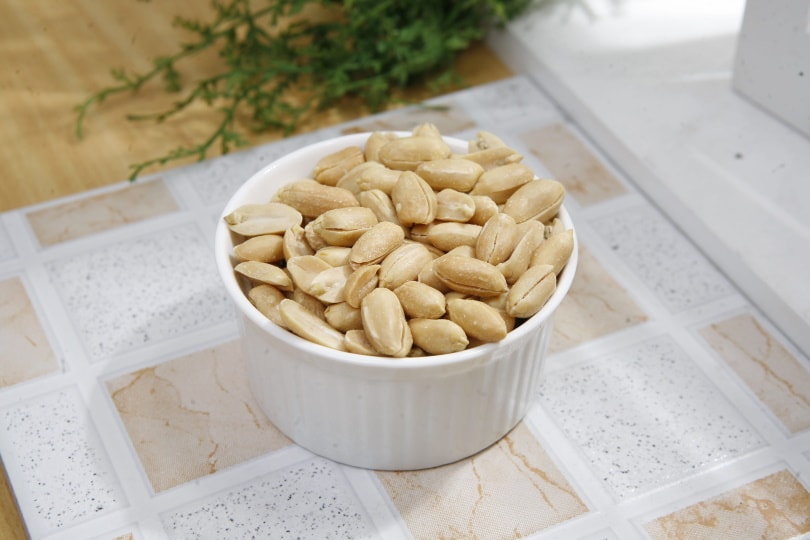
Peanuts Can Cause Bloating and Indigestion
In addition to being too calorically dense for a chinchilla, there’s also the problem of the other nutritional contents in peanuts.
- A chinchilla’s digestive tract is built to break down rough fibers. They are hindgut fermenters. Hay is rich in fiber and a chinchilla can survive on a diet of hay alone, but the addition of pellets ensures a complete and balanced diet. While some may balk at the idea, not every animal needs the same varied diet that humans do.
- Peanuts don’t have an exceptionally high rough fiber content. Chinchillas cannot break down peanuts effectively. When digestion is delayed, they can develop a stomach upset and cause gas build-up.
- While a human would become flatulent, chinchillas cannot pass gas as easily as humans (and some humans have difficulty with it as well.) A chinchilla will not only feel ill, but their stomach lining can tear and burst from the gas build-up.
- Gas build-up can be fatal to chinchillas. So, while your chinchilla won’t die from a single peanut they got by accident, you shouldn’t make a habit of feeding your chinchilla peanuts.
- The lack of fiber in peanuts is a problem too. Eating too many peanuts can cause indigestion, and your chinchilla may experience diarrhea or soft stools if they’re not getting enough fiber.
- Salted peanuts are even worse than regular peanuts because the sodium content is far too high. Raw peanuts and peanut butter still have fat contents that are too high to be appropriate for a chinchilla’s diet.
Overall, we recommend not feeding your chinchilla peanuts. They’re not appropriate in content for a chinchilla’s diet and can have harmful effects on their health.
Peanuts May Be Mouldy
Finally, another important issue often present with peanuts is the presence of mold. Moldy peanuts can cause even more serious health issues, as well as signs of mycotoxin poisoning, leading to gastrointestinal, liver and kidney issues and neurological signs.
Overall, we don’t recommend feeding your chinchilla peanuts. They’re not appropriate in content for a chinchilla’s diet and can have harmful effects on their health.

Appropriate Treats for Chinchillas
Chinchillas are rodents which means they have open-rooted incisor teeth that grow indefinitely. Chinchillas will gnaw on hard objects to wear down their teeth. If they don’t do this, their teeth will grow to uncomfortable lengths or even grow through the skin of their mouth.
Chinchillas will need plenty of toys to chew on in their day-by-day life. Most chinchilla parents like to give their chinchillas woodblocks, particularly those made of applewood. Some woods can be poisonous and even deadly to small animals who chew on them since some amount of the chew toy will inevitably be ingested.
Dried rose hips are a great treat that is healthy and delicious. Dried rose hips are high in fiber and vitamin C, making them an excellent option for chinchillas. This kind of roughage is easy for chinchillas to digest and provides essential nutrients for the diet.
Dried herbs can also be offered to your chinchilla several times a week in small amounts. Dandelion greens, rosemary, hibiscus, parsley, and strawberry or blackberry leaves can provide essential nutrients and are a nice deviation from the usual hay.

What Other Foods Chinchillas Should Avoid
There are a lot of treats that are commonly marketed to chinchillas that prospective parents should avoid. While chinchillas are becoming a more popular pet, they don’t have the most powerful dedicated industry, and many commercial treats for small pets are not as good for them health-wise.
1. Yogurt Drops
Yogurt drops are very high in sugars and fats. They should be avoided in your chinchilla’s diet.
2. Seed Sticks
Seed sticks have very little nutritional value for chinchillas. Seeds and nuts are also very high in fats and should be avoided.
3. Corn
Corn should be avoided as well due to high carb content, low fiber, poor digestibility for cinchillas, as well as the risk of mold contamination.
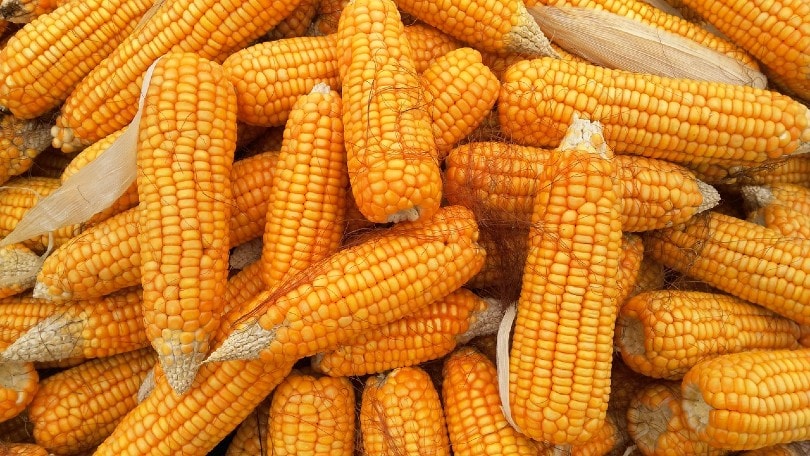
4. Chocolate
Chocolate is high in fats and sugars and contains theobromine making it dangerous for chinchillas to consume.
5. Dairy
Anything containing dairy must be avoided. The digestive upset caused by dairy can be fatal to a chinchilla.
6. Citrus Fruits
Citrus fruits are high in acids, and chinchillas have difficulty handling highly acidic foods.
7. Fruits With High Water Contents
Fruits that have dense water contents can give your chinchilla diarrhea.

Conclusion
Peanuts may not be poisonous to chinchillas, but they don’t represent good nutrition for them either, as well as pose certain health risks. Even though you shouldn’t feed your chinchilla peanuts, there are plenty of other excellent options for treats. We hope we’ve helped you get closer to finding the perfect blend of foods for your chinchilla!
Featured Image Credit: Edel-in-Wonderland, Shutterstock






